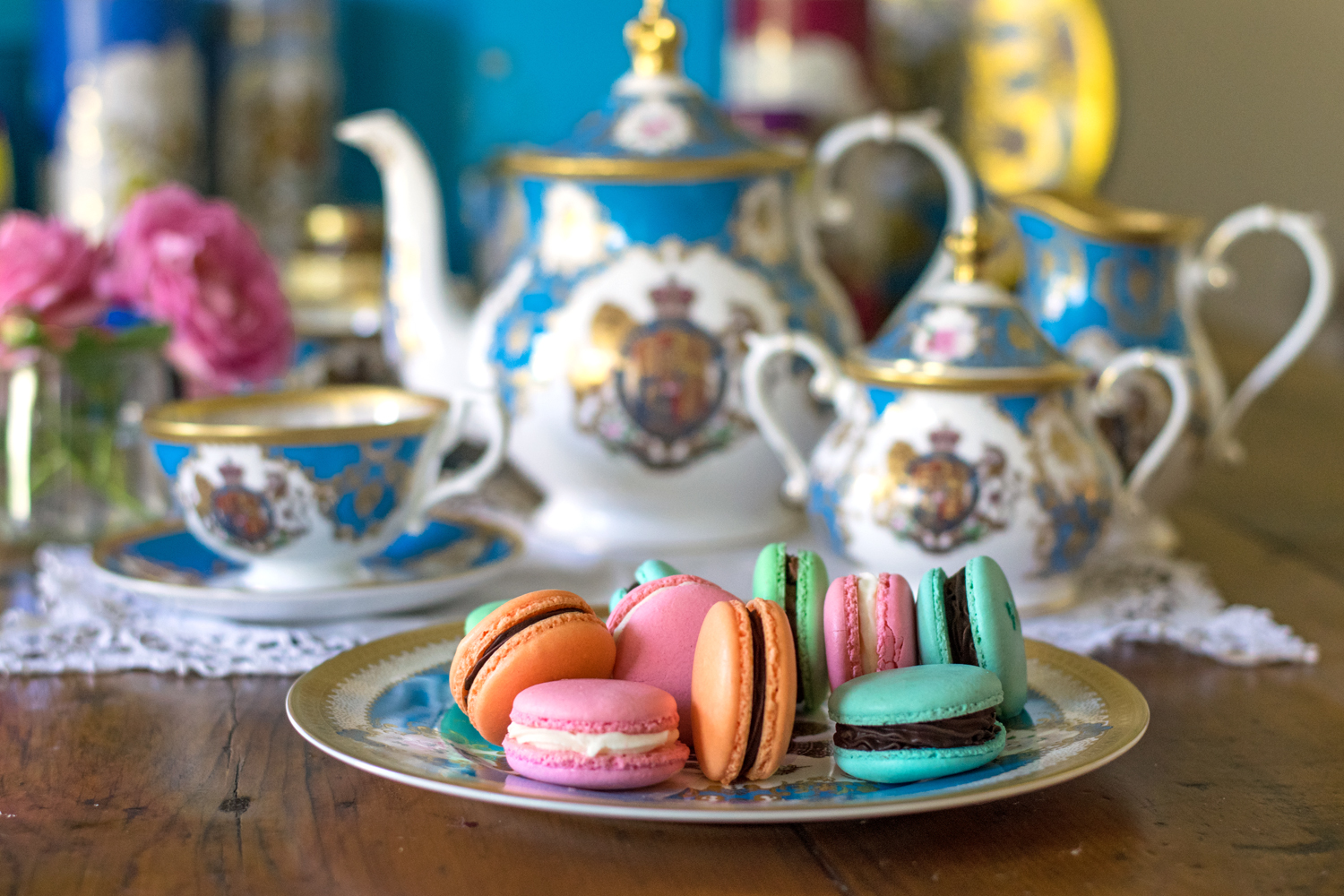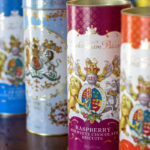Milena
I met her through invisible words.
When I described the fantastic, almost unbelievable true story of the Kafka Papers a few weeks ago, it reminded me just how incredible this story truly is. We have only Kafka’s half of the fantastic love story that was Kafka and Milena– he burned her letters and instructed her to burn his, but (as I was later to find out through more detailed research) she wasn’t so great at taking orders and kept his letters anyway. If she had not defied Kafka’s wishes and saved his letters to her because of their beauty and what she considered to be art which belonged to all of mankind, we most likely would never have known Kafka, the man. Indeed, scholars believe that only about 10% of Kafka’s total works survived, saved scrap by scrap and smuggled out of the country by friends mere minutes before the Nazis closed the Czechoslovakian borders.
And yet for all of their beauty, Kafka’s letters provide us with only a hint of their equally beautiful counterparts– Milena’s replies. Through the occasional quotation of a line from Milena’s letters or an answer to a question she apparently asked, we catch wisps– snatches– invisible ghosts– of those words which inspired Kafka’s creative genius and which have been lost forever to time. We do know that Milena was an incredible woman– one whose wit, vivaciousness, and understanding of the nuance of language caused Kafka to exclaim, “she is a living fire, such as I have never seen.” I was about to find out that Milena, the woman, was even more remarkable than Milena, the muse. It was to be a meeting that changed me forever.

As I once again researched the Kafka story which has always fascinated me, I started thinking. If Milena’s letters to Kafka did not survive, then I wonder if any of her other writings did. I started poking around and researching to find out if I could find and study anything, of any kind, that Milena had written. Although many of her documents were destroyed during the war due to her (then) traitorous ideas that all men, including Jewish people, deserved equality, a few have actually survived. What was even more intriguing to me was the book simply entitled Milena, a firsthand account of Milena’s time in Ravensbrück concentration camp by a woman she met and befriended while she was there– Margarete Buber-Neumann. The women met during their coinciding imprisonments, and they promised each other that if they both survived they would write a book about their experiences. If only one survived, then she would tell the other one’s story. As it turned out, Margarete was the only one who survived. She wrote the book to honor her friend and tell the seldom seen side of life inside a concentration camp from the rare, surviving testimony of one of its victims.
Now here, I must pause a moment. I hate to admit this, but normally when I see a movie or book about Holocaust victims, I quickly pass by it. The horror of these stories is so great that I am generally haunted for days and even weeks after encountering even one such tale. Then I think to myself, “So these people were tortured, raped, and murdered, and you are too delicate to read about it because it upsets you? That’s the attitude that keeps horror going– when others are afraid to face it and acknowledge it for what it is. Read the book. Do it for them.” I encounter this struggle every single time I am confronted with Holocaust literature or film.
For me, at least, reading something rife with such horror requires almost an emotional arming– almost like emotional trauma preparation. I personally cannot enter into such writings glibly, expecting to “do a few minutes of reading” when I have time or before bed. Holocaust readings require mental preparation and a very real period of grief and emotional mourning afterward, for me. They truly do. I can’t just sit down and flip on Schindler’s List when watching TV. I have to mentally assess whether I have the emotional fortitude to handle such a gruesome story right now with the respect and honor that it deserves.
There is a fine line, I think, between studying and understanding the horrors endured by concentration camp victims to honor their courage and strength, and using those stories merely to horrify and sensationalize. I have tried to ride that very fine line here– by showing what I must to understand the raw courage and strength of those who looked pure evil in the face and defied it, but without undue focus on the specific horrors which they endured because of the animalistic cruelty of others. If you would like to do further research, then I would highly recommend the book Milena. For my purposes here, I will try to keep my synopses limited to the lady Milena, herself– a paragon of courage in the face of unbelievable terror and a true example of hope in the midst of the most hopeless landscape imaginable. To understand that story, we must first go back in time.
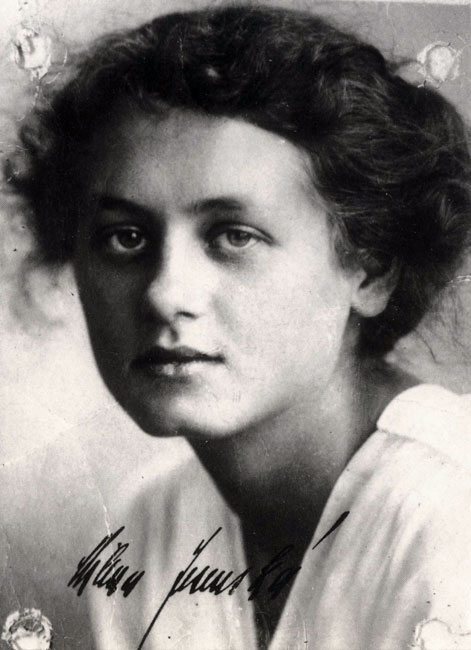
Milena Jesenská was born on August 10, 1896. Her family was well to do– her father was a respected dental surgeon and lecturer at Charles University in Prague where the family lived. Milena’s mother tried to instill into her daughter the manners of a high class lady, as befitted her station. Milena was given music lessons and a top notch education at a private school for girls. Her clothes were personally tailored for her by the finest dressmakers, and she was encouraged to bring herself up well, marry even better, and start a life of relative ease in affluent Czech society. She got along well with her mother, a delicate woman who was kind but always sickly. Her father, however, was a taskmaster– insisting that Milena behave “properly” so as not to embarrass him in front of his high society friends. She once penned that her mother was the only one who ever tried to understand her, and that her father had never shown any interest in doing so. Describing her father, she writes, “Irresponsibly, [people] bring children into the world and, hardly bothering to get acquainted with them, push them out into life.”
Her father insisted that all the societal “niceties” be observed at all times, even in the privacy of the family home. Milena was required to kiss her father’s hand when she saw him and call him “Sir” at all times– never father. She was required to sit inside at her increasingly sick mother’s bedside for hours at a time while her father was out with one of his many mistresses or losing a small fortune every day gambling at cards. If she accidentally fell asleep during the long night vigils she was severely punished by her father. Once she was punished by being locked into a trunk full of clothes until she almost smothered, screaming to get out. She never trusted her father again, and after her mother’s death Milena spent as little time at home as possible.
Dr. Jesenská wanted his only daughter to follow in his medical footsteps, but Milena had other plans. Unlike her mother, who had been kind but allowed herself to be “molded” into whatever her husband wanted, Milena had a fiercely independent streak. A friend wrote that “she had a woman’s tenderness and a man’s determination.” She hated being a socialite and was constantly finding ways to break out of the smothering debutante mold which her parents had tried to design for her. Milena wasn’t a troublemaker, per sa, but she was definitely marching to her own music, and that music often sounded like clashing cymbals to her father. She experimented with drugs (mainly because her father told her not to), and even tried various medications in her father’s drug cabinet with her friends, excitedly waiting “to see what would happen.” She was young, and the stifling rules of upper crust Prague seemed suffocating to her. She spurned the fashionable (and extremely expensive) gowns commissioned for her by her father and gave them to friends or even total strangers to get rid of them. On one occasion her father was shocked during one of his college lectures to see one of his students wearing Milena’s clothes, as his daughter had promptly given away the fashionable outfit he insisted that she wear, without even trying it on. She preferred to wear light, open, airy clothing (unheard of for high class women of that day who were cinched in to the nines and were expected to cover every bit of skin)– to wander through fields full of wildflowers in bare feet and no corset. She waded in the mountain streams and sunbathed on their banks, scandalizing her father and his friends. A friend later wrote that Milena wasn’t so much dressing her body as dressing her soul– for her soul could not be contained in anything that was not airy, beautiful, and free.

Milena adored flowers– in fact, for almost her whole life one could tell Milena had been somewhere because of the armfuls of blooms she would arrange and leave behind– a kiss of her presence– a whisper of beauty. Even in the concentration camp she managed to smuggle single blossoms in her uniform against her emaciated frame to leave with friends who were sick or dying. A small flower always meant that Milena had been there. Though her exact words are now lost to time, she once remarked to a fellow inmate something to this effect: “how can one outlaw flowers? How can the Germans stop us from appreciating the beauty that dares to grow, even here, within these horrible walls? The air is still fresh. It is still spring. The trees dare to blossom. You cannot stop them, anymore than you can stop me.” Flowers were to be a symbol of hope and freedom to her, even in the midst of the most unimaginable evil, all her life through.
She dropped out of medical school (entered only grudgingly at the threatening of her father) and instead made friends with authors, artists, and journalists of her day, many of whom were considered scandalous in their views of the government and its overreaching control. It was through these meetings that Milena first met Frank Kafka, and his ideas of modernism and freedom for all so inspired her that she fell deeply in love with him. Their romance was as much intellectual as it was emotional. To Milena, Franz Kafka represented what everyone should be– fearlessly looking into the future and beholding its terrible truths without flinching. To her dying day she loved him, writing a touching obituary when he passed away of tuberculosis at age 40. She wrote that “his books are amazing. He himself [was] infinitely more amazing.” She said that his work “is so overwhelming that all comment is superfluous.” It was a love story for the ages, and it inspired her each day for the rest of her life. She even told Margarete about Kafka in her last days at the concentration camp, commenting simply, “You know nothing about a person until you’ve loved him.”
Dr. Jesenská, however, did not appreciate his daughter’s insistence on associating with what he considered to be free thinking radicals, and he swiftly cut off her allowance. Women of Milena’s social stature rarely worked– generally they were raised in affluent households, receiving anything that money could buy from their fathers, until they married a well to do man and started receiving anything money could buy from their husbands. Milena had nothing but impatience at the thought of such a path. When her father cut her off financially (multiple times, through the years), she would simply go to work– a scandalous position for well to do women of the day. She cheerfully did any job that would pay, from translating manuscripts from German into Czech (where she first began her relationship with Kafka), to lifting heavy suitcases at the railroads, acting as a porter. She feared nothing and had no time for the displeasure of a society that was scandalized when a woman dared to do the things that she found quite amusingly easy. Multiple times her father, absolutely aghast at seeing her working “a common job” (seeing her as a railway porter almost put him in his grave) would reinstate her allowance, just to make it stop. But for Milena, it had never been about the money– she wanted independence. She lived very simply despite the limitless cash at her fingertips. She most often used her father’s money to support the very authors and musicians which he despised, as well as other causes to which he would have surely objected vehemently, had he known where his “good behavior dues” were going.
She was a total romantic at heart, without any care of societal expectations or possible negative repercussions for her actions. Once when she heard of a poor man who was unable to be with the woman he loved due to financial imbalance, she rented a huge suite at a beautiful hotel and decorated it with bushels and bushels of flowers. For that one night, at least, they were free to love each other in the most beautiful place she could provide. Milena never thought of herself– she was always thinking of others. It was almost as if she were compelled to do so. The very name Milena means “loving one,” and she truly embodied the sentiments behind her name. Once, one of her bitter enemies became so drunken at a local pub that he was thrown out into the street. Milena observed what happened and immediately went outside to care for him until medical help could arrive. She kept him warm and dry and free from those who would have liked to pick his pockets. A friend remarked that Milena’s kindness to others had very little to do with how she felt about the person. She could not bear to see another person suffer– even an enemy. It was simply the way she was made.

When Milena turned 20 she met Ernst Polak, a handsome young socialite who was also part of the group of academics, authors, and artists to which Milena had become so attached. She was instantly smitten by his charm and good looks. Ever the romantic, she excused the beginnings of red flags, caught up in this whirlwind new romance. After their first night together she begged him to climb with her to the top of a dewy hill to watch the sun rise, arm in arm. He went along, griping of the “harmful effects of such foolishness” and grumpily asking, “hasn’t it risen far enough?” Polak was Jewish, which further infuriated Dr. Jesenská. The winds of anti-Semitism had already begun to stir in Europe; he didn’t want his daughter to become known as the girl who was, quite literally, sleeping with the enemy. He went so far as to have Milena committed to a mental institution for months in a desperate attempt to get her to break off the relationship. In spite of (or perhaps even because of) her father’s aversion to Polak, Milena married Ernst in 1918. Sadly, the marriage was to cause her nothing but heartache and pain. Her husband moved the young couple from Milena’s childhood home of Prague, where she knew by heart the dark, beautiful forests with their sweeping vistas and wildflower-covered hillsides, to impoverished Vienna in a dank apartment with few windows and filthy, trash-covered streets. All of her friends and family were now miles away, and Milena had no one to talk to or support her except her new husband, which she was beginning to realize that she barely knew. Polak drank heavily and frequented brothels and prostitutes openly, audaciously sending his bills to Milena to pay. It was during this abysmally unhappy marriage that Milena began writing to Kafka. His letters soothed her and reminded her from his sickbed that even when the body is prisoner, the soul is free– a lesson which would sustain her then, and again years later in the concentration camps.
Finally, after Kafka’s death, Milena found the courage to leave her husband and start again. She moved back to Prague and steadily gained a reputation as a writer. Her friends saw that the bloom of happiness was again starting to seep into her face. The unhappy marriage and lonely years in Vienna were fading as the music, dance, and excitement of her childhood Prague began to soothe those unpleasant memories into oblivion. In 1927 she fell in love and married again– this time to an intelligent, well to do architect named JaromÃr Krejcar. Her marriage to Krejcar was to be one of the few periods of true happiness in her life– and when she discovered she was expecting a child, her joy knew no bounds.

A few months into her pregnancy, however, she felt ill– so ill that she consulted a doctor. The doctor listened impatiently to her complaints, but without even performing a physical examination told her to “stop being a sissy” and that “it would pass.” (Yes– really. Can you believe that??)
Milena returned home, deathly ill. She remained in constant pain for months, finally becoming so ill that she collapsed and had to be rushed in an ambulance to a hospital, where it was determined that she had septicemia. Doctors did not expect her to live; she was given high doses of morphine to stop the unimaginable pain. Her baby was born as she drifted in and out of consciousness.
Milena was in the hospital for almost a year, during which time her dependence on morphine grew. She experienced health problems and semi-paralysis in one of her legs for the rest of her life, due to the doctor who refused to investigate the source of her pain at the beginning of her pregnancy. It took her almost a decade to completely wean herself off morphine, a bitter fight which eventually cost her her beauty, her job, and her marriage. Though she and her husband divorced, they were good co-parents and sincerely tried to give their daughter, Honza, a good life. JaromÃr designed a beautiful building in downtown Prague and gave Milena the spacious penthouse apartment, with sweeping views of the city she loved. She decorated it lavishly with flowers, to the point where it became known as “Milena’s hanging gardens.” She continued to write and began to garner real journalistic attention for her political pieces on the growing tensions in middle Europe.
Her predictions, sadly, came true more quickly than anyone would have imagined. It was a sad day when the beautiful city of Prague was seized by the Nazis. Thousands of soldiers marched through the beautiful city squares and hung swastikas from the university and churches. Allies who had promised to protect Czechoslovakia from Hitler stood by, doing nothing. The people wept. Interestingly, even here Milena presents the humanity of those fighting. She wrote a moving piece in what was rapidly becoming an underground political journal that an army is composed of individuals– and that many times those individuals are fighting because they have no choice, not because they want to hurt others. She tells of seeing a young Czech woman bursting into tears at the sight of the Nazis swarming the beautiful public square, and of a young German soldier comforting her, saying “Ach, Fräulein, it’s not our fault.” She says that the man was young, with a youthful face and reddish hair. Without his uniform he could easily have been mistaken for any young man, anywhere, about to begin his life. She pens, “Two human beings stood face-to-face and were not to blame.” And thus, Milena was first introduced to the sobering realities of war– and yet still chose to think the best of people and see the humanity where many saw only cruelty.
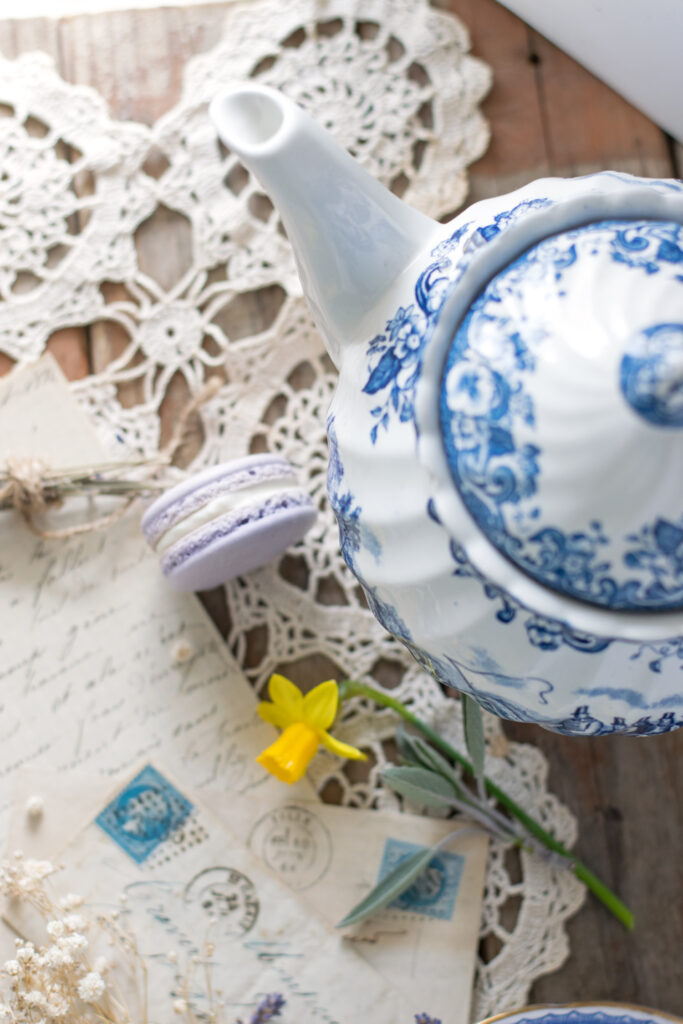
As the Nazi regime tightened its hold, Milena’s work as a subversive political journalist became more and more dangerous (and, to her, even more important). She saw free press as the way to inspire her countrymen to resist– to realize that their spirits could not be broken, even if their bodies were enslaved. Again and again she managed to get her messages to her people, often through clever and unexpected means. Due to her command of both Czech and German, she was able to hide secret messages in her prose, thereby escaping the censor’s marks. For instance, she pretended to praise German forces, while simultaneously comparing them to Czech political idiots, an irony which only a native Czech speaker would understand. The German censors did not understand the underlying meanings behind the face value words and allowed them to be published, never realizing that they were being completely taken in by an extremely clever and crafty woman who was spreading anti-German propaganda far and wide, most ironically with the German censor’s official stamp of blessing.
Milena continued to write, tricking the censors. Her prose became so boldly subversive that her own father called her and asked, “how have you not been arrested yet?” She knew that the day was inevitable, but she kept resisting in such ways as she could, even as the papers were forced to go underground. She opened her home to hundreds of Jewish and political prisoners for safety. It must have been strange for many people fleeing war-torn homes to be welcomed into Milena’s lavish apartment and her balcony full of every type of flower imaginable. It must have seemed like an Eden in the midst of hell. She used her own personal finances to support those in need– even selling many of the fine clothes and jewelry which she owned to help those in her house escape to safety.
Sadly, the Gestapo soon learned of her involvement in smuggling Jewish refugees across the border and summoned her for an interview. When the SS officer asked her if she associated with Jews she boldly replied, “Of course I do. Have you any objection?” When they asked if the father of her child was Jewish, she replied, “I regret to say he is not.” The German officer lost his temper, spluttering, “That will do. We are not used to such answers here!” Matching his tone, Milena snapped back, “And I’m not used to such questions.” She was released from that particular interview, but she knew that her days were numbered. She started wearing the Jewish star on her clothing (Jews had been ordered to wear this symbol of supposed disgrace so that they could be identified and refused service at places of business), despite not being Jewish. When her friends asked her if she was crazy, she said that she was showing support for people who were being bullied, and they should be ashamed of themselves for not doing the same. She told her readers that “to comfort someone, one must be able to experience his suffering, and that is a rare gift.”

During the last few weeks of Milena’s freedom she continued to distribute her illegal political journals and smuggle refugee families out of the country, using anything she could get her hands on to sell or use to bribe officials. Her apartment was almost completely bare by this point– all of the valuables, furniture, jewelry, supplies, and even her clothes had been bartered for the lives of those she was helping to escape. Finally, they came for her– even as she smuggled her young daughter out the door with friends she had arranged in advance to take her. Little Honza proved as brave as her mother, refusing to talk even when a German officer hit her across the mouth. Honza’s beloved pet, a huge, black tomcat, attacked a German officer in final farewell, causing the Nazi soldiers to leave the property cursing and bleeding. To the bitter end, Milena and her little family fought.
By the time Margarete met Milena, she (Milena) had already been incarcerated for several months. But unlike her fellow inmates, Milena did not allow the horrific conditions to change who she was. When many inmates would do anything to garner favor with the guards, including betraying or cruelly enforcing rules upon fellow inmates, Milena never would. Margarete remarks that “[Milena’s] way of speaking, of moving, of holding her head: with every gesture she said ‘I am a free woman.'” Kafka’s lesson, shared so long ago, was her mantra: you may have my body, but you will never possess my soul. Prisoners all around her were drawn to her strength and courage in the face of unimaginable horrors and evil. Milena never seemed to be afraid. At one point during roll call she dared to whistle the National Anthem. A guard raced over and raised his hand to hit her across the face. Milena did not flinch or stare down. She showed no signs of fear. The guard, seemingly under a spell, lowered his hand and did not hit her. She later explained that fear is based in the unknown. I am not afraid because whatever happens, I am prepared for it. I will not look down. Her presence was magnetic. Everyone knew that here, even clothed in rags, was a true lady. Milena had no fear. She commanded respect, and others gave it, sometimes without even realizing why.
Milena received work at the camp infirmary, and she frequently falsified records to save prisoners’ lives. Prisoners with various health complaints were murdered immediately, and Milena did what she could to save as many as she could. If her false reports would have been discovered she would have been killed, but this never stopped her. Her desire to help others overwhelmed her fear every time. Once she made the audacious request to have a meeting with the camp’s bloodthirsty commandant, Ramdor– a man so well known for cruelty that inmates trembled at the mention of his name. Surprisingly, Ramdor granted Milena’s interview request. She had gone to see him on behalf of her friend who had been imprisoned in solitary confinement for over a month (and fed only once every 4 days). Milena rightly surmised that her friend needed to be removed from this hell as soon as possible to avoid death, and she calmly requested that the commandant release her. The man who could have snapped his fingers and had her murdered on the spot “made his next mistake. He listened.” For whatever reason, he honored Milena’s request, saving the life of her friend. Months later Ramdor tried to exact a blackmail favor from Milena, to which she responded with disgust: “Herr Ramdor, you’ve come to the wrong address. I am not a stool pidgeon.” He found himself gulping back an apology. He made the astonishing comment, “I can’t deny it. You really are a decent person.” Milena raised her head and replied, “Yes I am. And I didn’t need you to tell me.”
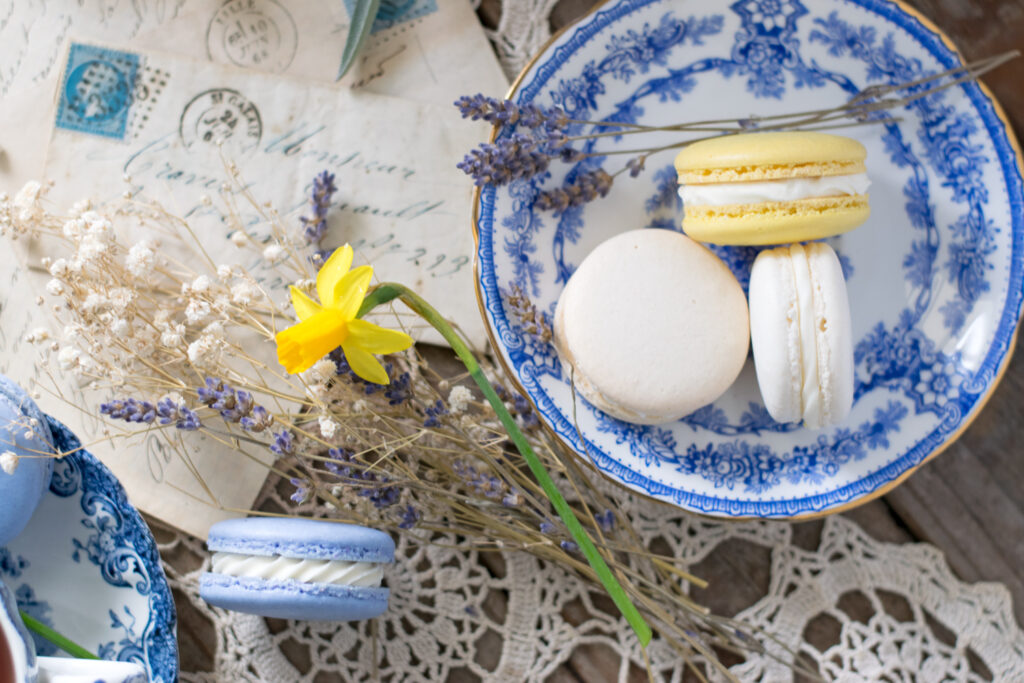
As Milena’s health continued to decline, her mind remained as sharp as ever. When one prisoner sanctimoniously bragged that her daughter had been married in white, a true virgin, to anyone who would listen, Milena became nettled. The woman continued to intimate that every woman in the barracks was a whore, and that only her daughter was “pure.” At one point she asked Milena if she didn’t think the marriage, so blessed, would last? Milena, feeling weak and sickly, responded dryly: “The way I look at it is this: after her tenth man, your daughter may have learned something about the other sex, so maybe she will manage to live more or less happily with the eleventh.” The woman was flabbergasted but never bothered Milena again.
Through the end, Milena continued to keep an upright spirit and try to help those around her. She smuggled blossoms into the sick rooms– who can be sad when a crocus is in bloom? She smelled the warm earth and closed her eyes– once again, she was running barefoot in the meadows, as free as her spirit, one with the wind. When Margarete burst into tears at Milena’s increasingly gray pallor and poor health, Milena whispered, “It’s awful to see someone you love crying. It makes me think of last farewells, of my tears in cold railroad stations, the heartless twilights of trains . . . the end of love. Please don’t ever cry again.” She remained relentlessly upbeat, even as her body began to shut down. On another occasion, as she drifted in and out of consciousness, she breathed softly, “Thank God, love is indestructible. It’s stronger than any barbarism.” More than anything else in the world, she wanted to be loved truly, and to love just as fully and deeply in return. She wrote, “If you have just one person with whom you can be weak, miserable, and contrite, and who won’t hurt you for it, then you are rich.”
At the very end, Milena, delirious from fever and disease, looked toward heaven, her blue eyes sparkling in her red, feverish cheeks. She smiled. “How beautiful it is to stand up for our country and love it,” she whispered. She closed her eyes in peace and never opened them again. Only a few weeks later, the camp was liberated.

I don’t think Milena would want us to see her story as a tragedy. I think she would want us to remember her as victorious– courageous to the end, for those she loved. I think she would want us to remember that courage happens on an individual level– that we can still do what is right, even in the face of an overwhelming majority telling us that we are wrong. I think she would be proud to know that her daughter not only survived the war, but grew up with the fierce determination of her mother, continuing to distribute her mother’s political essays until the end of the war. I think she would be happy to know that her great love, Franz Kafka, would have been proud of her beautiful fire, which refused to be snuffed out. I think she would encourage us to take a walk in the garden and pick a flower. Breathe in its unimaginable beauty. Smell the earth. Feel the sunshine.
And know that our spirits are free.

Disclosure: This post may contain affiliate links, which just means that we get a few pennies if you purchase through our link. I never recommend products that I don't personally use and love. Thanks!
